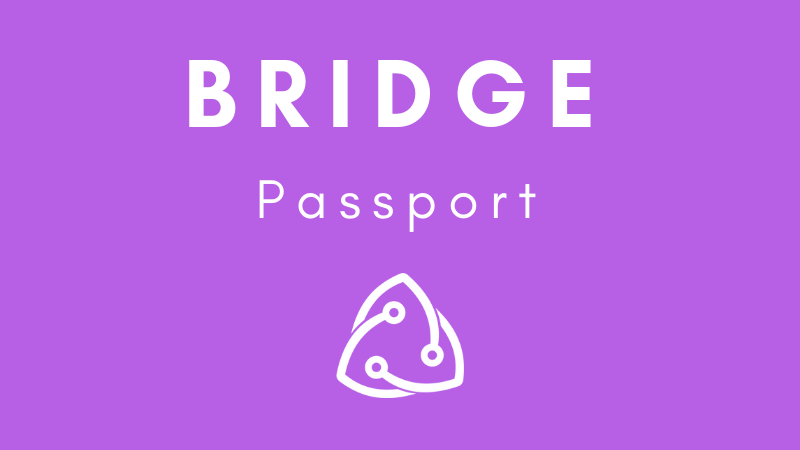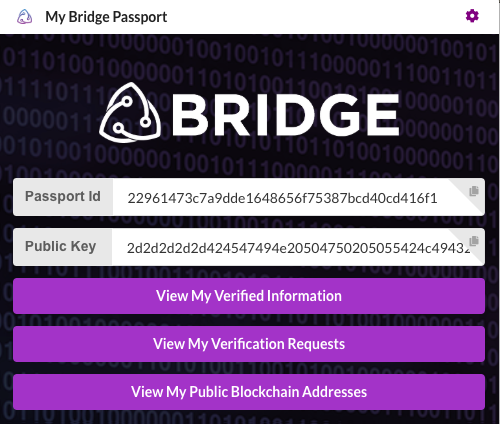
On November 25th, Bridge Protocol announced the launch of multiple products, including the beta Bridge Passport Chrome extension and its MainNet smart contract. Bridge Protocol aims to create a secure digital identity solution that verifies a user’s ID to a public address without the need to store sensitive information.
To protect user anonymity Bridge Protocol uses two forms of claims, public and private. Private claims are records that use Personal Identifiable Information (PII) such as first and last name, date of birth, gender, and email addresses. Public claims are vague by intent and include information that’s “accessible to the public and viewable to the world.”
API, Explorer, and MainNet
On the Bridge Protocol explorer, users are now able to view verification partners, claims, and transaction history. The explorer aims to make it easy to verify the approval of a Passport and confirm previous completed verifications.
Bridge has also launched its API, which allows businesses to verify information with regards to resumes and supply chain tracking, along with other blockchain-related uses. Bridge claims its has been able to develop a scalable system, as well as design an intuitive user interface. Scalability has been incorporated through the use of “containers,” which house the Bridge core and allows the software to run from a user’s laptop, and any public or private cloud.
The team has also launched the Bridge smart contract to the NEO MainNet, which now allows for payment services with TOLL, claims requests, and verification.
Bridge Passport Chrome Extension
The Bridge Passport Chrome extension is now available to community members and early adopters. The team chose to develop a Google Chrome extension as the web browser is widely used, and allows for a “1–2–3 click and standardization of a blockchain identity.” During the controlled release, the Bridge team will be taking feedback and input from Passport users.
The extension will store and maintain know your customer (KYC) and anti-money laundering (AML) information for personal verification and compliance. On its marketplace, users can “shop providers based on TOLL cost/business need or use the Bridge Corporation to KYC/AML.”

Users are interested in participating in Bridge Passport Chrome extension beta testing can register at the website below:
http://www.bridgeprotocol.io/
Looking Forward
Bridge will participate in the Constellation Consortium, which is a collective effort of community projects working together in an effort to design and develop NeoID, a universal blockchain identity.
Additionally, Bridge aims to explore cross-blockchain use, to provide Passport users the ability to use Bridge’s service with their preferred blockchain. According to the article, “testing has started with other blockchains as well, and goals for a BridgeChain are already in works.”
Lastly, a mobile software developer’s kit (SDK) will be developed, with a goal for “users to select their ID functions to share on an app for Android/iPhone.”







About The Author: Dylan Grabowski
Dylan is a reformed urban planner with a passion for covering the Neo ecosystem. His objective as a writer for Neo News Today is to report news in an objective, fact-based, non-sensational manner. When not behind a computer screen, he can be found in the mountains rock climbing. Find Dylan on Twitter (@GrabowskiDylan).
More posts by Dylan Grabowski